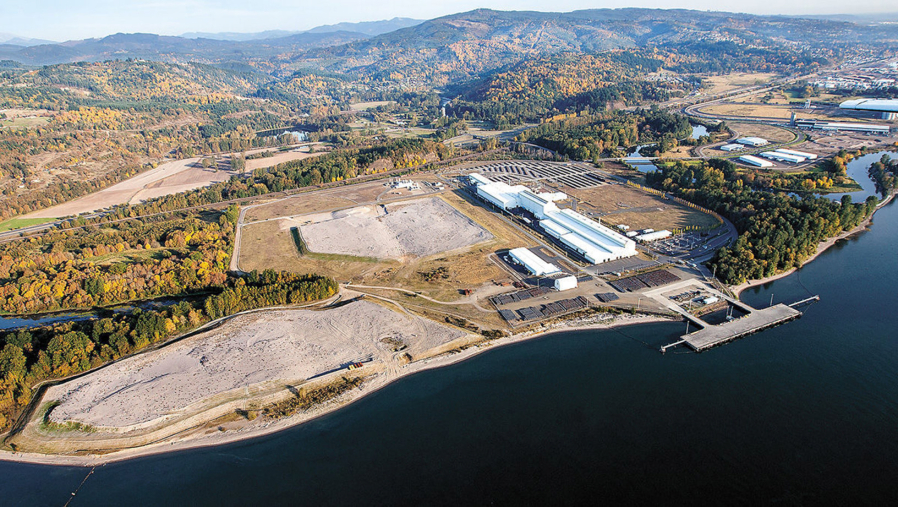LONGVIEW — The proposed Kalama methanol project may receive at least part of its financing from Washington state employees’ pension funds, and critics say that may present potential conflicts of interest for state employees charged with overseeing the plant’s permitting.
The state says that the relatively small, indirect financing wouldn’t present a conflict of interest, noting also that any potential pension system investments wouldn’t be made until the methanol plant obtains all permits.
The agency that manages the pension funds, Washington State Investment Board, isn’t directly investing in the methanol plant. Rather, the board has placed $400 million into a fund managed by a private investment firm called Stonepeak Infrastructure Partners. That pool of money will finance a variety of projects all over the world, possibly including Northwest Innovation Works’ methanol plant.
Stonepeak has an exclusive equity option in the project, which means it would be first in line with the right, but not the obligation, to invest in the plant, according to documents from WSIB obtained by Columbia Riverkeeper and presented by Sightline Institute.
If Stonepeak does decide to invest in the plant as part owner, it’s estimated that about $50 million of state employees’ retirement funds would support the methanol project, according to WSIB.
That amount represents a tiny fraction of the state’s retirement assets — about 0.06 percent. WSIB oversees $111.8 billion worth of assets, including about $84.2 billion in pension and retirement funds from state and public employees. The board has global, diverse investments in stock and bond markets, private equity and real estate.
The board’s capital has been invested in companies such as Microsoft, Starbucks, Amazon and Boeing as well as regional grocery store chains, health clinics, banks, and farm and orchard lands in Eastern Washington, among other things.
The diversified portfolio minimizes the board’s exposure to risk from any single project.
“No one’s individual retirement fund will be impacted one way or another up or down in any dramatic way by the outcome of one energy plant,” said Chris Phillips, spokesman for WSIB.
If the investment goes through, the estimated $50 million from WSIB capital would account for about 2.7 percent of Northwest Innovation Works’ $1.8 billion plant.
At the time the board voted to place its money in Stonepeak’s fund in December 2015, WSIB was fully aware that the methanol project was part of the picture, emails documents show.
Eric de Place, policy director for Sightline Institute, argued that an investment into a fossil-fuel based project won’t align “with the values of the people of the Washington.” And he argued it may at least create the appearance of a conflict of interest for state employees who make decisions about the project.
“It’s not crystal clear. I don’t think that you can point to a smoking gun and say something totally unethical happened here. I think it’s in a gray area about whether or not there’s a conflict of interest,” de Place said. “It feels to me that it’s putting state regulators into a jam … even if they don’t have any idea, it’s setting them up to not look objective.”
Already the state hasn’t given the project the same rigorous review it would typically give to large energy projects, de Place argued. Instead the state has deferred to local agencies (the port and county) to prepare the project’s environmental impact statement, even though the port could make millions from the methanol project, de Place added.
But Chris Phillips, spokesman for WSIB, said the board is one step removed from the investment itself. The board won’t actually be the ones to decide whether the state funds are invested in the methanol plant; Stonepeak will make the decision, Phillips noted. The project would have to secure permits and customer contracts first; and Stonepeak may also evaluate methanol prices and market conditions prior to finally agreeing to invest, Philips said.
It’s not unusual for the board to make the kind of investments it has made in Stonepeak’s Infrastructure Fund II. Typically, when the board meets monthly it makes multiple investment assignments that usually range between $250 million to $500 million, Phillips said.
“We don’t micromanage the fund at the project level, but we do take very rigorous look at the strategy, the people, the process for making decisions and how they handle permitting. All those strategic processes get evaluated very thoroughly,” Phillips said.
Stonepeak officials were unavailable for comment.
The firm represents a significant investor in Northwest Innovation Works project, said Vee Godley, president of NWIW. Godley said he doesn’t have any direct relationship with the Washington State Investment Board, and he noted that the board invests in a variety of different projects that touch on fossil fuels.



